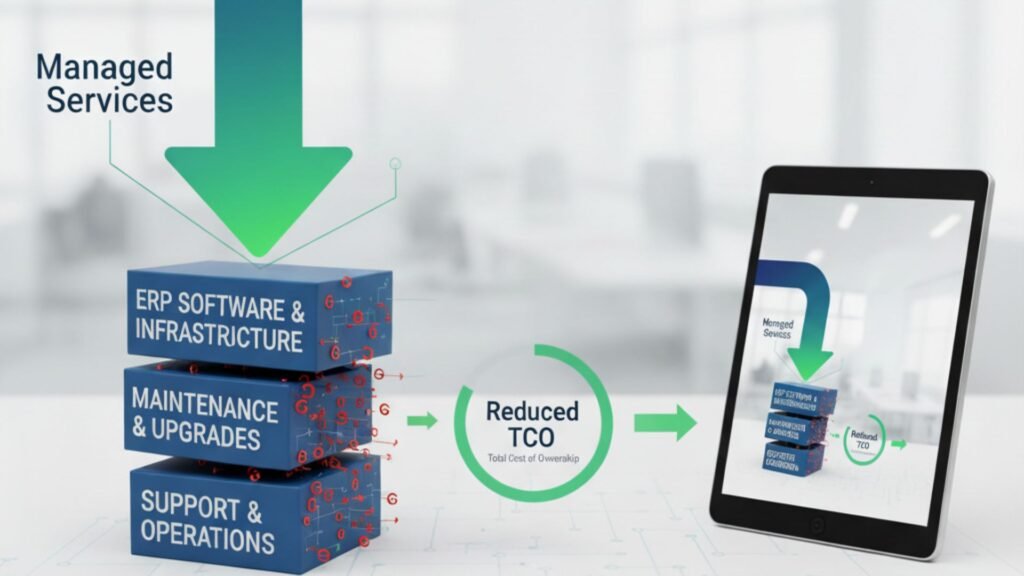How Food & Beverage Companies Use Dynamics 365 to Master Traceability and Recalls
In the fast-paced food and beverage (F&B) industry, ensuring product quality, safety, and compliance is non-negotiable. With strict regulatory requirements and growing consumer awareness, companies must maintain full control over their production and supply chain processes. Any lapse in traceability can result in costly recalls, reputational damage, and potential legal consequences. To tackle these challenges, many F&B companies are turning to Microsoft Dynamics 365 — a robust ERP and CRM platform that integrates operations, quality management, and compliance within a single ecosystem. By leveraging Microsoft Dynamics 365, food manufacturers can achieve end-to-end traceability, automate recall management, and ensure transparency across the supply chain. For businesses in the U.S., partnering with a certified Microsoft Dynamics 365 Partner in Texas, USA, such as Trident Information Systems, ensures successful implementation, customization, and ongoing support of this powerful solution tailored to the food and beverage sector. 1. Why Traceability Matters in the Food & Beverage Industry Traceability is the backbone of quality control in food production. It involves tracking every ingredient and product batch throughout the supply chain — from raw material sourcing to final delivery. The U.S. Food and Drug Administration (FDA), along with other global regulators, mandates stringent traceability protocols for F&B manufacturers. Non-compliance can lead to heavy penalties, forced recalls, and loss of consumer trust. With increasing globalization and complex supply chains, manual tracking methods are no longer sufficient. Manufacturers need a digital, automated system that ensures accuracy, speed, and complete visibility. Microsoft Dynamics 365 offers that capability — helping manufacturers trace, analyze, and control every step of their production and distribution process. 2. Challenges Food & Beverage Companies Face Without Proper Traceability Before implementing ERP systems like Dynamics 365, many F&B companies struggle with: These issues not only slow operations but also increase financial and reputational risks. 3. How Dynamics 365 Enables End-to-End Traceability Microsoft Dynamics 365 Supply Chain Management and Dynamics 365 Business Central provide comprehensive traceability capabilities designed for the food and beverage sector. Key Features: a. Batch and Lot Tracking Dynamics 365 enables tracking of ingredients and finished products by batch, lot number, and expiry date. This ensures precise visibility across production, packaging, and distribution. b. Real-Time Data Visibility The system offers real-time insights into raw material sourcing, processing stages, and delivery routes — allowing faster decision-making in case of potential issues. c. Automated Documentation Dynamics 365 automatically records all critical production data, including vendor details, quality test results, and shipping information, ensuring full traceability and compliance documentation. d. Integration with IoT and AI IoT devices can feed temperature, humidity, and handling data into Dynamics 365, allowing automated alerts for potential quality risks. With such comprehensive traceability, F&B businesses can identify and isolate defective products quickly — minimizing the impact of recalls. 4. Efficient Recall Management with Dynamics 365 When contamination or quality issues arise, speed is crucial. Delays in managing recalls can magnify financial losses and damage customer trust. Dynamics 365 simplifies and accelerates the recall process through automation and data intelligence. How It Works: By providing a single version of truth, Dynamics 365 ensures every stakeholder — from production managers to compliance officers — has access to accurate recall data. 5. Ensuring Compliance with Industry Regulations The F&B industry must comply with regulations like: Dynamics 365 supports compliance by offering: With a trusted Microsoft Dynamics 365 consulting services provider in Texas, USA, businesses can customize compliance workflows to match local and international standards. 6. Enhancing Supply Chain Transparency Food and beverage companies rely on a wide network of suppliers, distributors, and retailers. Dynamics 365 creates transparency across this ecosystem through integrated supply chain management. By integrating all supply chain touchpoints, manufacturers can guarantee accountability and consistency from farm to fork. 7. Quality Management and Risk Mitigation 7. Quality Management and Risk Mitigation Beyond traceability, Microsoft Dynamics 365 provides a robust Quality Management module that helps maintain high production standards and proactively manage risks. Features Include: By connecting quality management with production and logistics, companies can address quality issues before they reach the consumer — reducing recall probability and improving brand reputation. 8. Real-Time Analytics and Predictive Insights In a data-driven era, visibility isn’t enough — foresight is key. Dynamics 365 integrates with Power BI and Azure AI to deliver actionable insights. Benefits: For example, if temperature-sensitive ingredients show recurring issues during transport, Dynamics 365 can help pinpoint the cause and suggest preventive measures. 9. Case Example: How Dynamics 365 Helps During a Recall Imagine a beverage manufacturer discovers that a particular ingredient batch from a supplier is contaminated. Without integrated systems, identifying affected products and notifying stakeholders could take days. With Dynamics 365, the manufacturer can: This quick, accurate response minimizes recall scope and protects the company’s brand integrity. 10. Role of a Microsoft Dynamics 365 Partner in Texas, USA Implementing Dynamics 365 effectively requires expertise, customization, and local compliance knowledge. A certified Microsoft Dynamics 365 Partner in Texas, USA, like Trident Information Systems, ensures smooth implementation, user training, and long-term support. Key Services Offered: With a reliable partner, F&B companies can fully leverage Dynamics 365 to strengthen operations, compliance, and customer trust. 11. Benefits of Dynamics 365 for Food & Beverage Companies Key Area How Dynamics 365 Helps Traceability Complete visibility from supplier to shelf Recall Management Automated identification and communication Compliance Built-in audit trails and regulatory reporting Quality Assurance Real-time monitoring and control Supply Chain Optimization Streamlined sourcing and distribution Predictive Analytics Forecasting and risk prevention Customer Confidence Transparency and reliability With these features, Dynamics 365 helps F&B companies not only manage recalls efficiently but also prevent them through smarter operations. 12. The Future of Traceability in F&B As consumer expectations evolve and sustainability becomes a key priority, traceability systems will continue to advance. Dynamics 365 is positioned to lead this transformation through AI, blockchain, and IoT integration. In the near future, manufacturers will be able to provide customers with complete product histories — from ingredient origin to environmental footprint — using a single scan or QR code. By partnering with an
How Food & Beverage Companies Use Dynamics 365 to Master Traceability and Recalls Read More »








